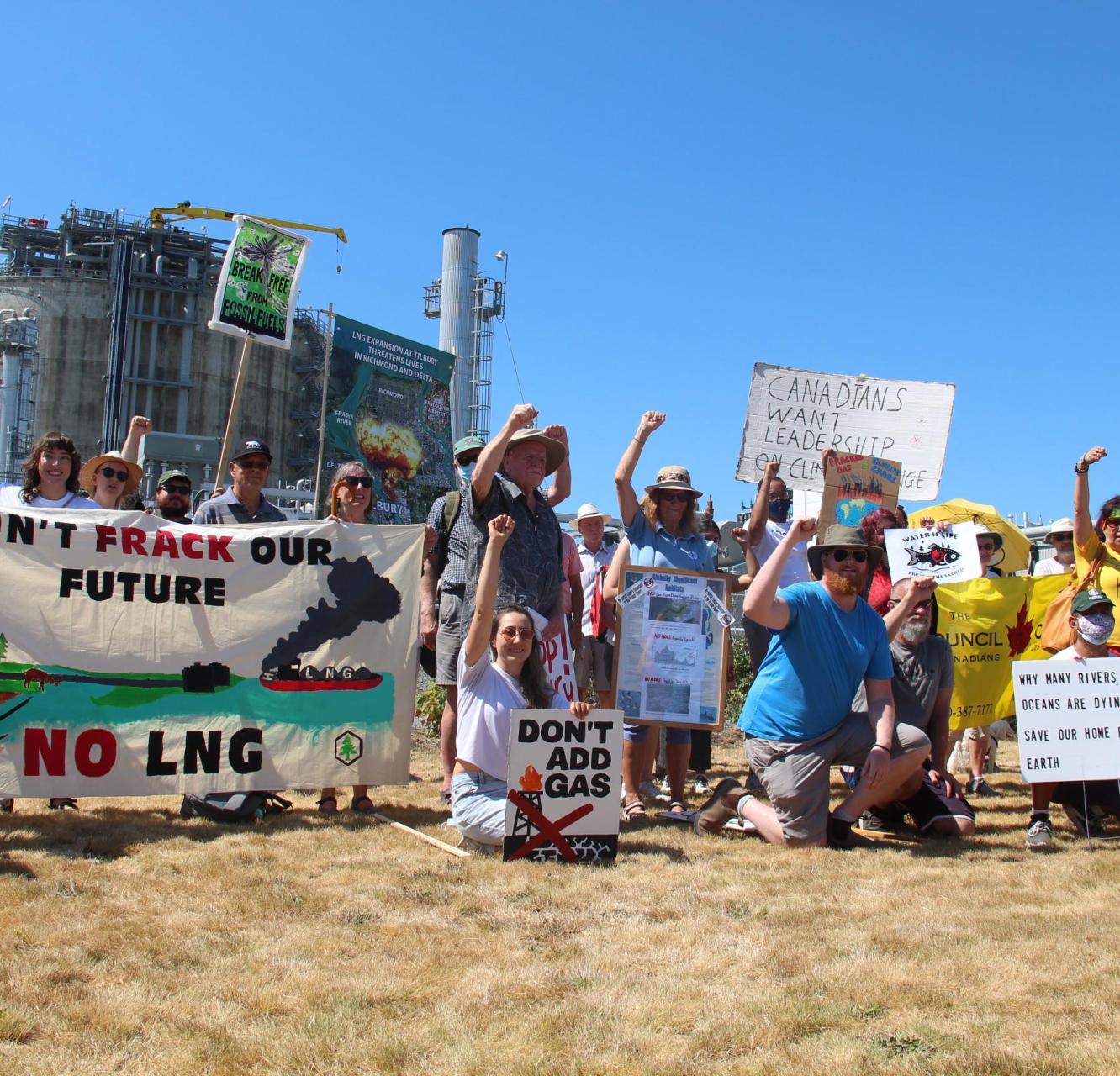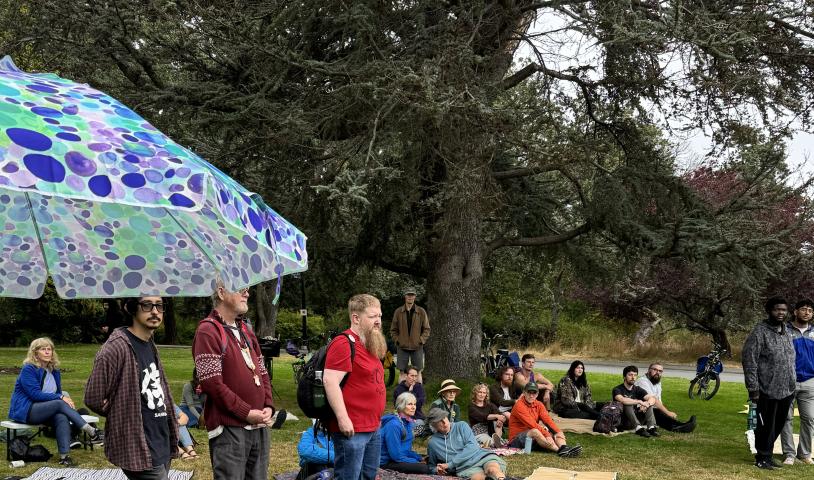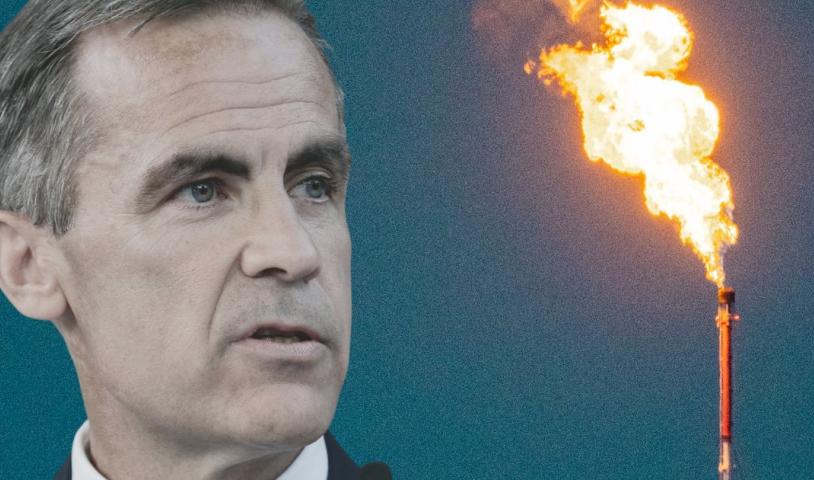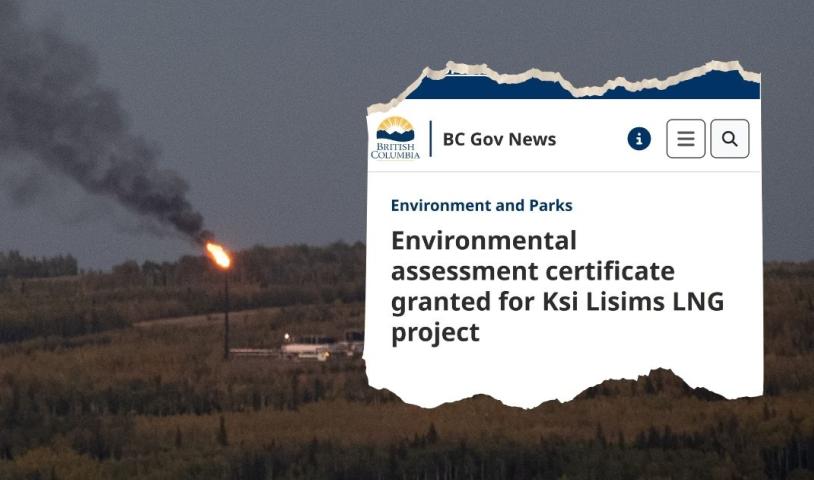Over 150 Groups Press Banks to Stop Backing Coastal GasLink Pipeline
Wednesday, February 9, 2022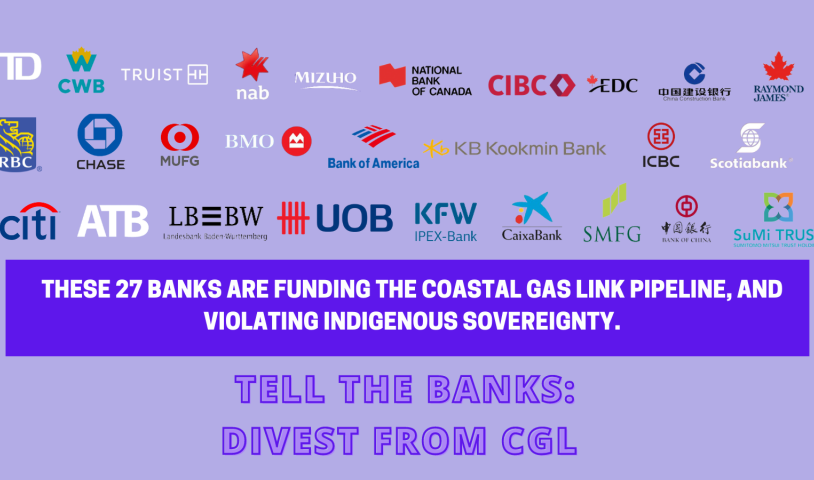
A letter released today by more than 150 non-government organizations is calling on 27 financial institutions led by the Royal Bank of Canada to pull their investment dollars out of the Coastal GasLink pipeline.
The groups released their letter just days after pipeline opponents with the Gidimt’en Clan asked the United Nations Human Rights Council to look into ongoing human rights violations and militarization in their territory.
The NGO letter backgrounds the intense controversy around the 670-kilometre pipeline that would connected fossil gas fracking fields in northeastern British Columbia to the mammoth LNG Canada liquefied natural gas terminal now under construction in Kitimat. It urges the bank to meet with hereditary leadership of the Wet’suwet’en Nation to discuss their concerns about the pipeline and the recent rights violations in their territory, and to stop investing in the project.
“Coastal GasLink has not engaged in respectful consultation with us,” said Gidimt’en Checkpoint spokesperson Sleydo’ (Molly Wickham), in a citation that leads off the NGO letter. So “backing this project implicates investors in perpetuating violence to our land and on my people. If investors are serious about their commitments to social responsibility and racial justice, they must commit to not financing projects that threaten Wet’suwet’en sovereignty, violate our land, and sacrifice our future.”
The UN submission by Gidimt’en Hereditary Chief Dinï ze’ Woos (Frank Alec), Sleydo’, and Gidimt’en Checkpoint Media Coordinator Jen Wickham was drafted by “leading legal, academic, and human rights experts in Canada” and backed by more than two dozen organizations, including the Union of BC Indian Chiefs and Amnesty International-Canada, the Checkpoint said in a release.
“Ongoing human rights violations, militarization of Wet’suwet’en lands, forcible removal and criminalization of peaceful land defenders, and irreparable harm due to industrial destruction of Wet’suwet’en lands and cultural sites are occurring despite declarations by federal and provincial governments for reconciliation with Indigenous peoples,” the submission states.
“By deploying legal, political, and economic tactics to violate our rights, Canada and B.C. are contravening the spirit of reconciliation, as well as their binding obligations to Indigenous law, Canadian constitutional law, UNDRIP [the UN Declaration on the Rights of Indigenous Peoples], and international law.”
Check out the original article published by The Energy Mix.
